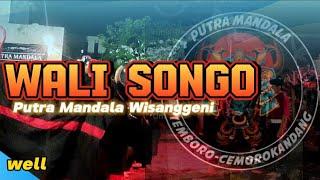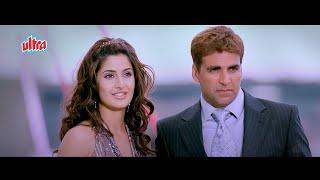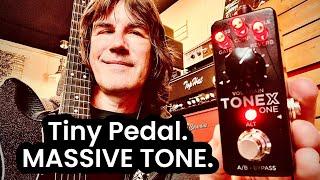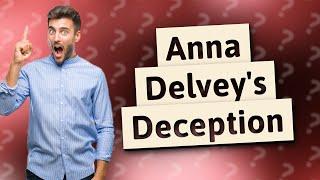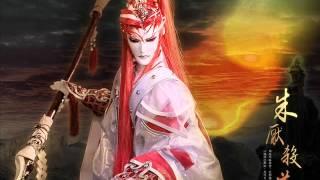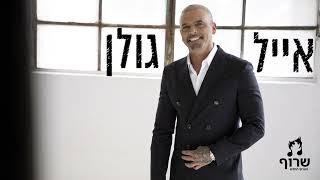
Boris Yeltsin - History of Russia in 100 Minutes (Part 35 of 36)
"History of Russia in 100 Minutes" is a crash course for beginners. Here you will find the complete history summarized and retold in simple language with accurate dates, the most relevant names and essential concepts. After finishing the course, you will know:
- The basic characteristics of Russian history in different epochs
- The 54 most important rulers and 106 historical persons in Russian history
- 126 key dates and events in Russian history
- The basic terms and concepts of Russian history
The text is accompanied by numerous online resources:
- 20,000 pictures
- 700 videos
- 3,500 songs
- 100 podcast episodes
All that is available via the smarthistories.com website.
http://smarthistories.com/
Narrated by: Sammi Bold
Written by: Tanel Vahisalu
Edited by: Madis Maasing and Kerry Kubilius
Proofread by: Tony Burnett
Graphic Art by: Mehak Zaib Suddle
Video:
"Highlights of Boris Yeltsin" by isnitironic
“Soviet Union Changing Times” by Ed Schuman (1989)
"Death on Loan” by Sergey Keshishev (1995)
Music:
"Tchaikovsky (Part II)" and "Crocodile Ghena's Song" (1995) by J.M.K.E.
https://www.discogs.com/JMKE-Sputniks...
- - - - - - - - - -
BORIS YELTSIN
After the collapse of the Soviet Union, Russia became a constitutional republic. Yeltsin's reign as the first president was, at first, characterized by high hopes of democracy and prosperity. Nevertheless, along with crime, corruption, and poverty on the rise, it turned out to be a disappointment and a harsh experience for most Russians.
BACKGROUND
During the final years of the Soviet Union, Boris Yeltsin became one of its most popular statesmen. He gained nearly 60% of the votes at the Presidential election in 1991. Yeltsin expressed his support for freedom of speech and a free-market economy.
SHOCK THERAPY
Under the supervision of experts from the United States and the IMF (International Monetary Fund), the first Prime Minister, Yegor Gaidar launched a series of radical reforms that came to be known as, “… the shock therapy.” Markets were left to self-regulation, prices were freed, and state subsidies were ended. Orchestrated by Anatoly Chubais, an enormous campaign of privatization was launched.
The shock therapy further escalated the economic crisis, and caused an even more dramatic decline in living conditions. Over the next five years, there was a decline of up to 50% in GDP, and hyperinflation soared to 2000%. It made a small elite of oligarchs super-rich, while the majority of the people struggled. It fed the spread of corruption and created favorable conditions for the numerous mafia groups around the country.
CONSTITUTIONAL CRISIS
In 1993, the Russian Constitutional Crisis broke out between Yeltsin and parliament. The parliament, unsatisfied with president Yeltsin's policies attempted to impeach him, but was prevented by the army who supported Yeltsin. For two weeks, the deadliest street fighting since 1917 took place in Moscow, and around 200 people died. The new constitution gave the president broader powers.
FIRST CHECHEN WAR
After Chechnya declared independence, Russia sent troops in, and the First Chechen War (1994-96), had begun. Contrary to popular expectation, the conflict lasted over two years, Russia had to withdraw its troops and terminate the unpopular war effort.
Re-election, Economic Collapse and Resignation
In 1996, Yeltsin's declining reputation was successfully re-boosted for re-election with the help of the oligarchs, Boris Berezovsky, Vladimir Gusinsky, Roman Abramovich, and others. Yeltsin ran for a second term and won.
Because of Yeltsin’s severe health problems, much of the President's power fell into the hands of his inner circle called, “The Family.” Besides Berezovsky, the Family consisted of his wife, Naina, and his daughter, Tatiana Yumasheva, with her husband Valentin. Cabinets came and went. The most important Prime Ministers were Viktor Chernomyrdin, Yevgeny Primakov, and Sergey Stepashin.
In 1998, the Russian financial crisis hit the economy hard, and the ruble was devalued. Exhausted by health problems, Boris Yeltsin resigned on the last day of 1999. He apologized, in his resignation speech, for not having achieved his goals, and named the relatively young, and unknown, Prime Minister, Vladimir Putin, his successor.
- The basic characteristics of Russian history in different epochs
- The 54 most important rulers and 106 historical persons in Russian history
- 126 key dates and events in Russian history
- The basic terms and concepts of Russian history
The text is accompanied by numerous online resources:
- 20,000 pictures
- 700 videos
- 3,500 songs
- 100 podcast episodes
All that is available via the smarthistories.com website.
http://smarthistories.com/
Narrated by: Sammi Bold
Written by: Tanel Vahisalu
Edited by: Madis Maasing and Kerry Kubilius
Proofread by: Tony Burnett
Graphic Art by: Mehak Zaib Suddle
Video:
"Highlights of Boris Yeltsin" by isnitironic
“Soviet Union Changing Times” by Ed Schuman (1989)
"Death on Loan” by Sergey Keshishev (1995)
Music:
"Tchaikovsky (Part II)" and "Crocodile Ghena's Song" (1995) by J.M.K.E.
https://www.discogs.com/JMKE-Sputniks...
- - - - - - - - - -
BORIS YELTSIN
After the collapse of the Soviet Union, Russia became a constitutional republic. Yeltsin's reign as the first president was, at first, characterized by high hopes of democracy and prosperity. Nevertheless, along with crime, corruption, and poverty on the rise, it turned out to be a disappointment and a harsh experience for most Russians.
BACKGROUND
During the final years of the Soviet Union, Boris Yeltsin became one of its most popular statesmen. He gained nearly 60% of the votes at the Presidential election in 1991. Yeltsin expressed his support for freedom of speech and a free-market economy.
SHOCK THERAPY
Under the supervision of experts from the United States and the IMF (International Monetary Fund), the first Prime Minister, Yegor Gaidar launched a series of radical reforms that came to be known as, “… the shock therapy.” Markets were left to self-regulation, prices were freed, and state subsidies were ended. Orchestrated by Anatoly Chubais, an enormous campaign of privatization was launched.
The shock therapy further escalated the economic crisis, and caused an even more dramatic decline in living conditions. Over the next five years, there was a decline of up to 50% in GDP, and hyperinflation soared to 2000%. It made a small elite of oligarchs super-rich, while the majority of the people struggled. It fed the spread of corruption and created favorable conditions for the numerous mafia groups around the country.
CONSTITUTIONAL CRISIS
In 1993, the Russian Constitutional Crisis broke out between Yeltsin and parliament. The parliament, unsatisfied with president Yeltsin's policies attempted to impeach him, but was prevented by the army who supported Yeltsin. For two weeks, the deadliest street fighting since 1917 took place in Moscow, and around 200 people died. The new constitution gave the president broader powers.
FIRST CHECHEN WAR
After Chechnya declared independence, Russia sent troops in, and the First Chechen War (1994-96), had begun. Contrary to popular expectation, the conflict lasted over two years, Russia had to withdraw its troops and terminate the unpopular war effort.
Re-election, Economic Collapse and Resignation
In 1996, Yeltsin's declining reputation was successfully re-boosted for re-election with the help of the oligarchs, Boris Berezovsky, Vladimir Gusinsky, Roman Abramovich, and others. Yeltsin ran for a second term and won.
Because of Yeltsin’s severe health problems, much of the President's power fell into the hands of his inner circle called, “The Family.” Besides Berezovsky, the Family consisted of his wife, Naina, and his daughter, Tatiana Yumasheva, with her husband Valentin. Cabinets came and went. The most important Prime Ministers were Viktor Chernomyrdin, Yevgeny Primakov, and Sergey Stepashin.
In 1998, the Russian financial crisis hit the economy hard, and the ruble was devalued. Exhausted by health problems, Boris Yeltsin resigned on the last day of 1999. He apologized, in his resignation speech, for not having achieved his goals, and named the relatively young, and unknown, Prime Minister, Vladimir Putin, his successor.
Тэги:
#boris_yeltsin_definition #who_was_boris_yeltsin #which_russian_president_resigned_in_the_1990s #boris_yeltsin #yeltsin #boris_jeltsin #boris_yeltsin_lost_support_within_russia_because_of #1993_russian_constitutional_crisis #1993_constitutional_crisis #viktor_chernomyrdin #yt:cc=on #yegor_gaidar_summary #shock_therapy_russia #viktor_chernomyrdin_summary #chernomyrdin_definition #yevgeny_primakov_summary #brief_history_of_russia #summary_of_russian_history #russian_history_summaryКомментарии:
Boris Yeltsin - History of Russia in 100 Minutes (Part 35 of 36)
Smart History of Russia
АКШАЙ КУМАР HD ТАРЖИМА ХИНД КИНОЛАР УЗБЕК ТИЛИДА | YANGI TARJIMA KINOLAR OʻZBEK TILIDA 2024
NaviStudioHD™ Tarjima kinolar 2024
ToneX ONE - Tiny Pedal MASSIVE TONE!
Pete Thorn
Ases Falsos - Fuerza Especial
whatfuckinwaster
Did Anna Delvey actually have a trust fund?
Answer Alley
霹靂布袋戲- 魔之使者(吞佛童子武戲)
Ho Dione
E+ Portugalska
Daša Sojer


